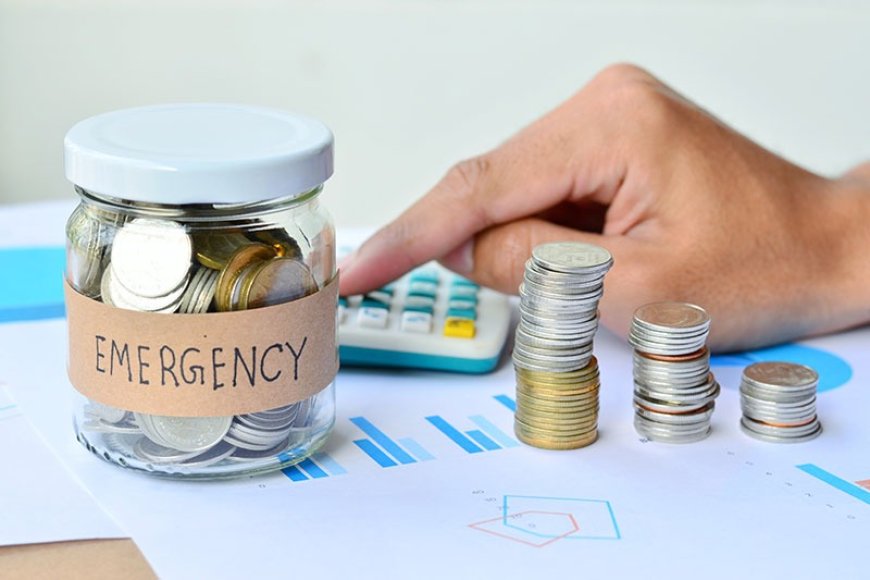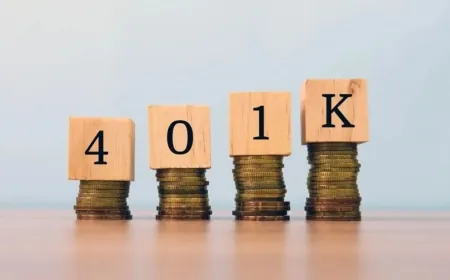Shielding Your Future: The Essential Armor of Emergency Funds
Secure your financial stability with emergency funds. Learn practical steps to build a safety net and protect against unforeseen expenses. Safeguard your future today

In an unpredictable world, being financially prepared for emergencies is vital. Whether it's an unforeseen medical expense, a car repair, or a sudden job loss, having an emergency fund can provide a much-needed safety net during challenging times. In this article, we will delve into the significance of emergency funds, explore practical steps to build one, and offer useful tips to ensure your financial stability and peace of mind.
The Significance of Emergency Funds
An emergency fund serves as a financial cushion, enabling you to handle unexpected expenses without compromising your long-term financial goals or resorting to high-interest loans or credit cards. Let's explore the key reasons why having an emergency fund is essential:
-
Financial Security: An emergency fund provides a sense of security by ensuring you have readily available funds to cover unforeseen expenses. It shields you from falling into debt or facing financial hardships during crisis situations.
-
Peace of Mind: Knowing that you have a safety net in place significantly reduces stress and anxiety. With an emergency fund, you can navigate emergencies with a clear mind, making sound financial decisions.
-
Debt Avoidance: By having an emergency fund, you can avoid relying on credit cards or loans to cover unexpected expenses. This helps maintain a healthy financial profile and saves you from paying hefty interest charges.
Building an Emergency Fund
Now that we understand the importance of having an emergency fund, let's discuss practical steps to build one:
-
Set a Realistic Goal: Begin by determining how much you would need to cover three to six months of essential expenses. Consider factors such as rent or mortgage payments, utilities, groceries, and any other necessary monthly expenses. This target amount will guide your savings efforts.
-
Start Small, Be Consistent: Begin by setting aside a modest portion of your income each month for your emergency fund. Consistency is key, even if your contributions are initially small. Over time, these regular deposits will accumulate and grow into a substantial fund.
-
Automate Savings: Make use of automatic transfers from your paycheck or checking account directly into your emergency fund. This eliminates the temptation to spend the money elsewhere and ensures consistent saving. Schedule the transfers to occur on the same day you receive your income, streamlining the process.
-
Cut Unnecessary Expenses: Take a close look at your spending habits and identify areas where you can cut back. Reduce discretionary expenses such as eating out, entertainment, or subscription services. Redirect the saved money towards your emergency fund. Regularly review your monthly expenses to identify additional areas for potential savings.
-
Supplement Your Income: Explore opportunities to supplement your income. Consider taking on a part-time job, freelancing, or monetizing a hobby or skill you possess. Direct the extra earnings towards your emergency fund, accelerating its growth.
-
Prioritize Debt Repayment: Strike a balance between building your emergency fund and repaying high-interest debts if you have them. Aim to pay off debts while simultaneously contributing to your fund. Start with high-interest debts to alleviate long-term financial burdens.
-
Save Windfalls: When unexpected income such as a bonus, tax refund, or monetary gifts comes your way, allocate a portion of it to your emergency fund. Utilizing windfalls to bolster your fund can yield significant progress. While it may be tempting to indulge, prioritizing your emergency fund ensures long-term financial stability.
-
Review and Adjust: Regularly assess your progress and adjust your contributions as needed. As your financial situation improves, consider increasing the amount you set aside for emergencies. Periodically revisit your goal to ensure it aligns with your current circumstances.
Conclusion
Building an emergency fund is a crucial step towards financial stability and preparedness. It provides a safety net that shields you from unexpected financial setbacks, reduces stress, and empowers you to navigate challenging times with confidence. By setting realistic goals, maintaining consistency in your savings, and making wise financial choices, you can gradually build an emergency fund that safeguards your financial future. Remember, it's never too late to start—every small contribution counts. Begin building your emergency fund today and experience the peace of mind it brings.
Also Read: The Power of Money and the Mind: Exploring Behavioral Finance for Financial Insight
































































